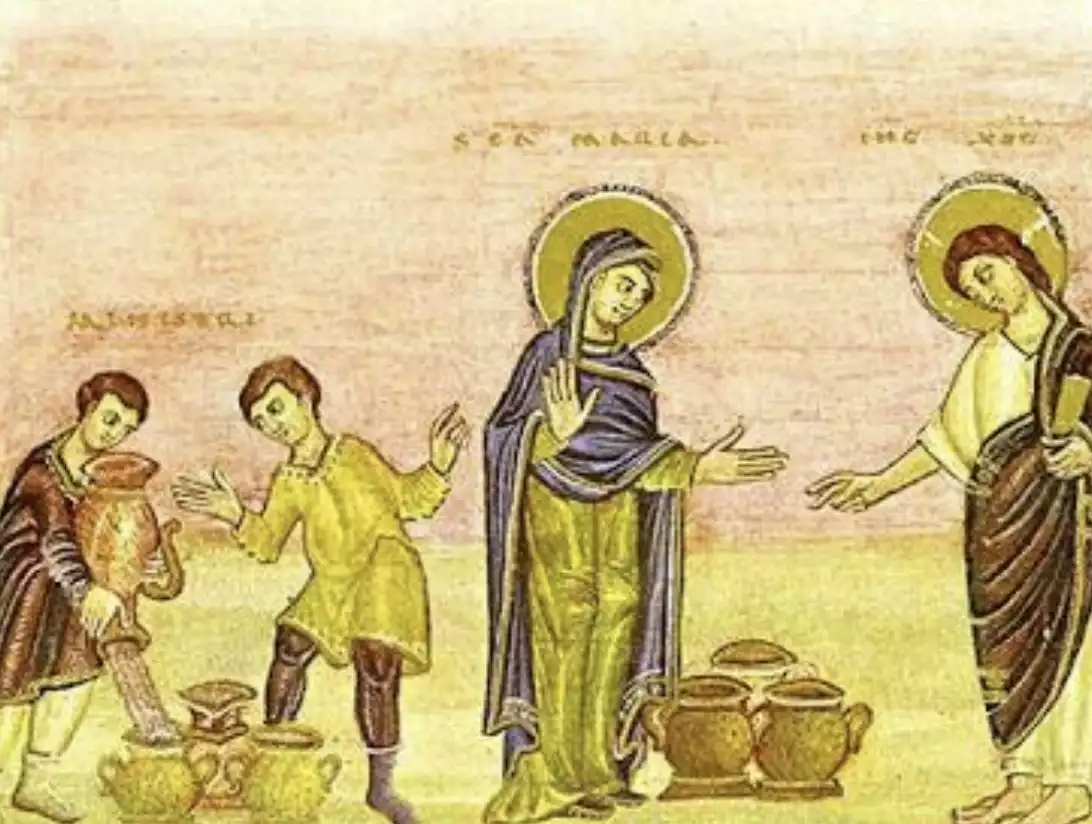
Marriage is a holy sacrament instituted by God, uniting man and woman as “one flesh” in a mystical union of love. This divinely ordained covenant has a twofold purpose: the spiritual perfection of the couple and the procreation of children.
Defining the Sacrament of Christian Marriage
The sacrament of marriage unites man and woman in mystical bonds of love, creating a little church or “ecclesia” wherein the couple journeys toward salvation together. This union transcends merely physical pleasures, instead oriented toward spiritual perfection and growth.
At its core, Christian understandings of marriage derive from the prototypical wedding of Adam and Eve. God fashioned Eve out of Adam’s rib so that man might have a “helper fit for him” (Gen. 2:18). In this act we see that man and woman are inherently designed to complete one another. The two shall become “one flesh” (Gen. 2:24), bonded by erotic love and free self-gift.
The purposes of the wedding are likewise revealed in early Genesis accounts. God blessed the first couple, saying “Be fruitful and multiply” (Gen. 1:28). Thus procreation represents a secondary telos subordinate to the primary aim of unifying and sanctifying the spouses. Parenthood offers the couple an oppurtunity to cocreate new life through their love.
Marriage’s indissolubility proceeds from its sacramental nature. The marital bond mirrors Christ’s eternal union with the Church (Eph. 5:32); severing such would rupture a holy reflection of divine mystery. Legal divorce contradicts God’s will that “what God has joined together, let no man put asunder” (Matt. 19:6). However, the weakness of the human heart sometimes necessities dissolution as an act of mercy in exceptional cases of adultery or abandonment. But even civil divorce cannot undo the supernatural marriage bond, much as it may strain the relationship visible to mankind’s eyes.
Marriage as a God-Given Gift
The Judeo-Christian tradition has long understood matrimony as a sacrament established by God, not invented by man. Biblical accounts trace the origins of marriage to the union of Adam and Eve in the Garden of Eden. God designed the sexes to complement one another so that “it is not good that the man should be alone” (Gen. 2:18). He fashioned Eve out of Adam’s rib to cure this incompleteness, making her the perfect “helpmeet” and companion for life’s journey.
This passage encapsulates the foundation of Christian marriage: one man and one woman becoming “one flesh” through erotic love and mutual self-gift (Gen. 2:24). Their bond reunites humanity’s fractured state to recreate wholeness within both partners. For marriage is not fully realized in isolation but in relationship with the other who is bone of one’s bone and flesh of one’s flesh.
The first couple’s love bore the sweet fruits of parenthood and multipliation (Gen. 4:1). While procreation represents a secondary purpose, God nonetheless designed conjugal love to be profoundly life-giving. Children arrive through holy collaboration in God’s creative work, allowing parents to cocreate new eternal souls.
Tragically the Fall marred marital intimacy, interjecting elements of lust and domination into the equation. Yet God permitted conjugal relations to persist despite mankind’s now tainted state. In this allowance we see marriage’s grandeur: it provides occasion to refocus the disordered soul back toward the divine through selfless love.
Centuries later the incarnate Christ would Himself bless a particular Jewish wedding at Cana (John 2:1-11). His first public miracle turned water into fine wine when drink stocks depleted. More than alleviating a practical need, Jesus elevated this marriage – and all marriages by proxy – into something sacred by virtue of His presence and words. For what God has touched becomes holy, and the realm of matrimony is no exception.
In conclusion, marriage originates as a holy gift from God, solemnized by Christ’s first public miracle at the wedding feast of Cana. This sacrament echoes God’s Trinitarian essence through the marital communion of two-in-one-flesh. Husband and wife journey toward salvation together, spurring one another toward holiness and spiritual perfection. Their union creates new life while also deepening intimacy with the divine. For wedding provides a conduit of God’s grace and love within the context of earthly family bonds. This mystical institution has stood the test of time as a cornerstone of faith, culture, and human civilization – evidence of its integral role in God’s plan stretching back to Eden itself.
References
Alwis, Anne P. Celibate Marriages in Late Antique and Byzantine Hagiography: The Lives of Saints Julian and Basilissa, Andronikos and Athanasia, and Galaktion and Episteme. A&C Black, 27 Oct. 2011.
Dionysiou, A. (1996). Marriage and Celibacy. University Studio Press.
McGrath, A. E. (2001). Christian Theology: An Introduction. Blackwell Publishing.
Patsavos, L. J. (2003). Spiritual Dimensions of the Holy Canons. Holy Cross Orthodox Press.
Staniloae, D. (2018). The Experience of God: Orthodox Dogmatic Theology, Volume 2. Holy Cross Orthodox Press.
Ware, K. (1997). The Orthodox Way. St Vladimir’s Seminary Press.
